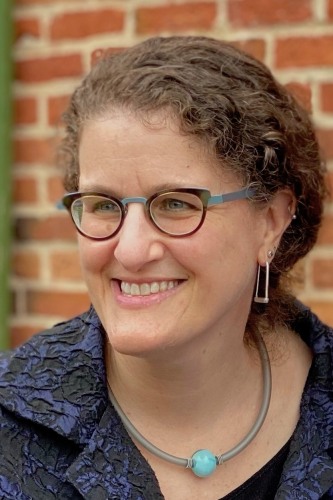AI, Health, and the Future of Scientific Cooperation
---

A national and global leader in health security, biosecurity, pandemic preparedness, biodefense, and combating bioterrorism, Dr. Cameron has worked at the highest levels over decades within and outside of government to facilitate change. She spent two tours as a Special Assistant to the President on the White House National Security Council staff, twice helping establish and lead the Directorate on Global Health Security and Biodefense, a role in which she served under three Presidents. In this and other positions, she builds and leads robust teams focused, every day, on leaning forward to prevent, detect, and rapidly respond to biological crises. In addition to her role on the Pandemic Center senior leadership team, Beth is a non-resident senior advisor to the Center for Strategic and International Studies (CSIS) Global Health Policy Center, a life member of the Council on Foreign Relations, and a practitioner senior fellow of the UVA Miller Center.
Dr. Cameron has held senior posts at the Departments of State and Defense, where she created and oversaw biological and chemical security efforts, as well as the U.S. Agency for International Development where she served as a global health security adviser. Outside of government, she served as a Vice President at the Nuclear Threat Initiative, where she was an architect of NTI | bio, a program aimed at countering biological catastrophes. She has been instrumental to developing, coordinating, launching, and implementing the U.S. global COVID-19 response, the Pandemic Fund, the U.S. National Biodefense Strategy, the Global Health Security Agenda, the Development Finance Institution Medical Countermeasures Surge Financing Initiative, the Global Partnership Against the Spread of Weapons and Materials of Mass Destruction biosecurity effort, and many other initiatives focused on improving biosecurity and biosafety globally. Her work has helped address homeland and national security threats by enhancing pandemic preparedness, biosecurity and biosafety; improving emerging infectious disease surveillance, and countering the development and use of biological weapons. She got her start in government as an AAAS fellow at the State Department and in the office of Senator Edward M. Kennedy. Beth holds a Ph.D. in Biology from Johns Hopkins University and a B.A. in Biology from the University of Virginia (UVA).
Outside of government, she led and was an architect of NTI | bio, a program of the Nuclear Threat Initiative aimed at countering biological catastrophes, and she served at the American Cancer Society. She got her start in government as an AAAS Fellow at the State Department and in the office of Senator Edward M. Kennedy. Beth holds a Ph.D. in Biology from the Human Genetics and Molecular Biology Program at the Johns Hopkins University and a B.A. in Biology from the University of Virginia.